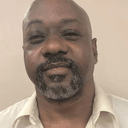by Vicki Schieber and Carolyn Leming
Feb. 16, 2007
The Gazette
We write as mothers who have been scarred by the death penalty.
Our stories are very different, but they are both stories of justice gone wrong. They are stories that convince us the capital punishment system in Maryland and across the country is broken beyond repair.
One of us, Carolyn, almost lost an innocent son — condemned to death for a crime he did not commit. It took 10 long years for the truth to come out and set him free.
The other, Vicki, lost a beautiful daughter — killed in a brutal rape and murder that ripped her away in the prime of her life. The possibility of a death sentence in the case threatened to keep the family in limbo for decades, reliving the crime again and again with every appeal.
Carolyn’s son, Ray Krone, spent nearly four years on death row in Arizona — and a total of 10 years in prison — after being convicted of murder in 1991. Ray had been a model youth, had spent seven years in the Air Force and had never been in trouble.
At trial, the main evidence against him was provided by an expert witness who was paid more than $50,000 but whose conclusions were wrong.
The news that he was sentenced to death was almost too much for his family to bear. All had great faith in police and prosecutors and were convinced that the system could not get a murder case so horribly wrong. But it did.
And it has happened here in Maryland as well. Ray is just one of nearly 125 people who have been exonerated after a judge or jury sentenced them to die. People can and will make mistakes; undoing one after an execution is impossible.
Some say there are solutions to the problems of wrongful convictions — more DNA testing, increased protections, greater care and scrutiny by the courts. But it took 10 years of appeals for Ray’s innocence to come to light. And it is all of those appeals and protections designed to reduce wrongful convictions that make the system so incredibly painful for victims’ family members like Vicki.
Vicki’s daughter, Shannon Schieber, grew up in Chevy Chase. She was 23 years old and finishing her first year of graduate school in Philadelphia when she was killed.
After the suspect’s arrest, Vicki and her husband urged the prosecutor not to seek the death penalty. They knew that if Shannon’s killer were sentenced to die, the death penalty process would drag on for years, even decades.
With each court decision, the murderer’s name would have been splashed across the headlines. As in all death cases, the system that promised swift and sure justice would instead creak along for years, delaying healing and prolonging pain. The enormous amounts of money spent pursuing the few executions that do happen diverts resources and attention from the services that would have really helped Vicki and her family.
Some say there are solutions to the prolonged suffering of murder victims’ family members when it comes to the death penalty — fewer appeals, less scrutiny, a cheaper system. But a shorter and cheaper system means more mistakes, more people like Ray caught in the system or even worse, executed quickly — before they can prove their innocence.
Separately, our stories are a stark reminder that the system has failed. But together, our stories prove that it can never be fixed. For every reform designed to protect people like Carolyn’s son, we add another year or decade of pain and waiting for victims’ families like Vicki’s. Victims need justice to be swift — but due process takes time, and when a life is on the line there is simply no room for error or hastiness.
For these reasons, more people and lawmakers around the country are coming to understand that these problems are insoluble. In just the last few weeks, committees in Nebraska and Colorado passed bills to repeal the death penalty. A New Jersey commission of law enforcement and victims has recommended the same.
We hope Maryland will also repeal its death penalty and replace it with a sentence of life without the possibility of parole.
Vicki Schieber lives in Chevy Chase; Carolyn Leming lives in Dover, Pa.



